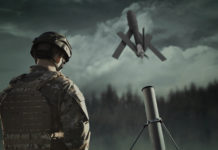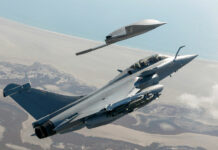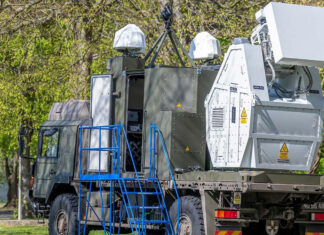The 30th MC-12 Liberty was recently deployed to the U.S. Central Command area of responsibility completing the initial deployment plan, an Air Force official announced July 9. MC-12 Liberty ISR aircraft are currently operating with three units in SOuthwest Asia: the 361st Expeditionary Reconnaissance Squadron operating from Kandahar, Afghanistan and the 4th Expeditionary Reconnaissance Squadron stationed in Bagram, Afghanistan and the 362nd Expeditionary Reconnaissance Squadron in Balad air base, Iraq.
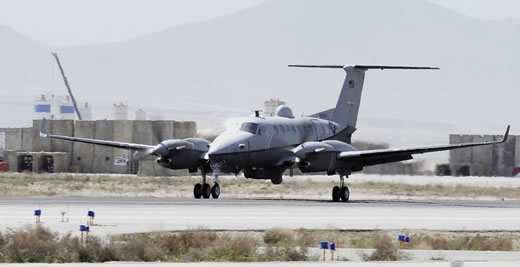
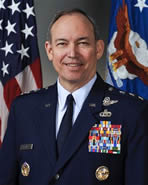 According to Lt. Gen. David A. Deptula, the deputy chief of staff for Intelligence, Surveillance and Reconnaissance at Headquarters Air Force, the aircraft has had a positive impact in theater. He added that the MC-12s assisted in the capture of hundreds of insurgents, and the discovery of weapons caches and improvised explosive devices. The MC-12 fleet has flown more than 5,000 combat sorties and taken more than 22,000 hours of full-motion video and more than 40,000 images to date. ”This project is an unqualified success, and the model for how we should develop and deliver quick-reaction ISR capabilities,” General Deptula said.
According to Lt. Gen. David A. Deptula, the deputy chief of staff for Intelligence, Surveillance and Reconnaissance at Headquarters Air Force, the aircraft has had a positive impact in theater. He added that the MC-12s assisted in the capture of hundreds of insurgents, and the discovery of weapons caches and improvised explosive devices. The MC-12 fleet has flown more than 5,000 combat sorties and taken more than 22,000 hours of full-motion video and more than 40,000 images to date. ”This project is an unqualified success, and the model for how we should develop and deliver quick-reaction ISR capabilities,” General Deptula said.
“The MC-12W is the fastest weapons system delivered from concept to combat since the P-51 Mustang in World War II” said “We mobilized a significant industry base and every resource at our disposal, and delivered the first Federal Aviation Administration-certified aircraft in six months and three weeks, It began flying combat sorties in less than eight months.”
In April 2008, Secretary of Defense Robert M. Gates established a Department of Defense-wide ISR Task Force to identify and recommend solutions for increased ISR in the CENTCOM AOR. Secretary Gates tasked Air Force officials July 1, 2008, to acquire 37 “C-12″ class aircraft to augment unmanned systems. It was less than eight months from funding approval to the delivery of the first aircraft in theater. The entire operational fleet of 30 aircraft was deployed in only 13 months.
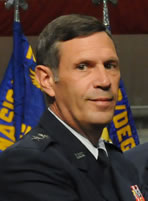 “The entire Project Liberty team worked seamlessly to get this airborne ISR capability to the AOR as quickly as possible,” said Lt. Gen Craig Koziol, the DOD ISR Task Force director. “From concept to all the sensor integration efforts required to get this platform deployed, the team demonstrated superb focus to get this quick reaction, airborne ISR capability fielded to support (Operation Enduring Freedom and Operation Iraqi Freedom).”
“The entire Project Liberty team worked seamlessly to get this airborne ISR capability to the AOR as quickly as possible,” said Lt. Gen Craig Koziol, the DOD ISR Task Force director. “From concept to all the sensor integration efforts required to get this platform deployed, the team demonstrated superb focus to get this quick reaction, airborne ISR capability fielded to support (Operation Enduring Freedom and Operation Iraqi Freedom).”
The aircraft are military versions of the Hawker Beechcraft Super King Air 350 and Super King 350ER. They are equipped with an electro-optical infrared sensor, and other sensors as the mission requires. The EO/IR sensor also includes a laser illuminator and designator in a single sensor package. A fully operational system consists of a modified aircraft with sensors, a ground exploitation cell, line-of-sight and satellite communications data-links, and a robust voice communications suite. The MC-12 capability supports all aspects of the Air Force Irregular Warfare mission — counter insurgency, foreign internal defense and building partnership capacity — and is capable of worldwide operations.
With the Air Force MC-12 program winding down, the U.S. Army is gearing up to replace its Guardrail aircraft with C-12 based platforms, equipped to carry out a wider range of missions, beyond the traditional electronic surveillance performed by the Guardrail.

